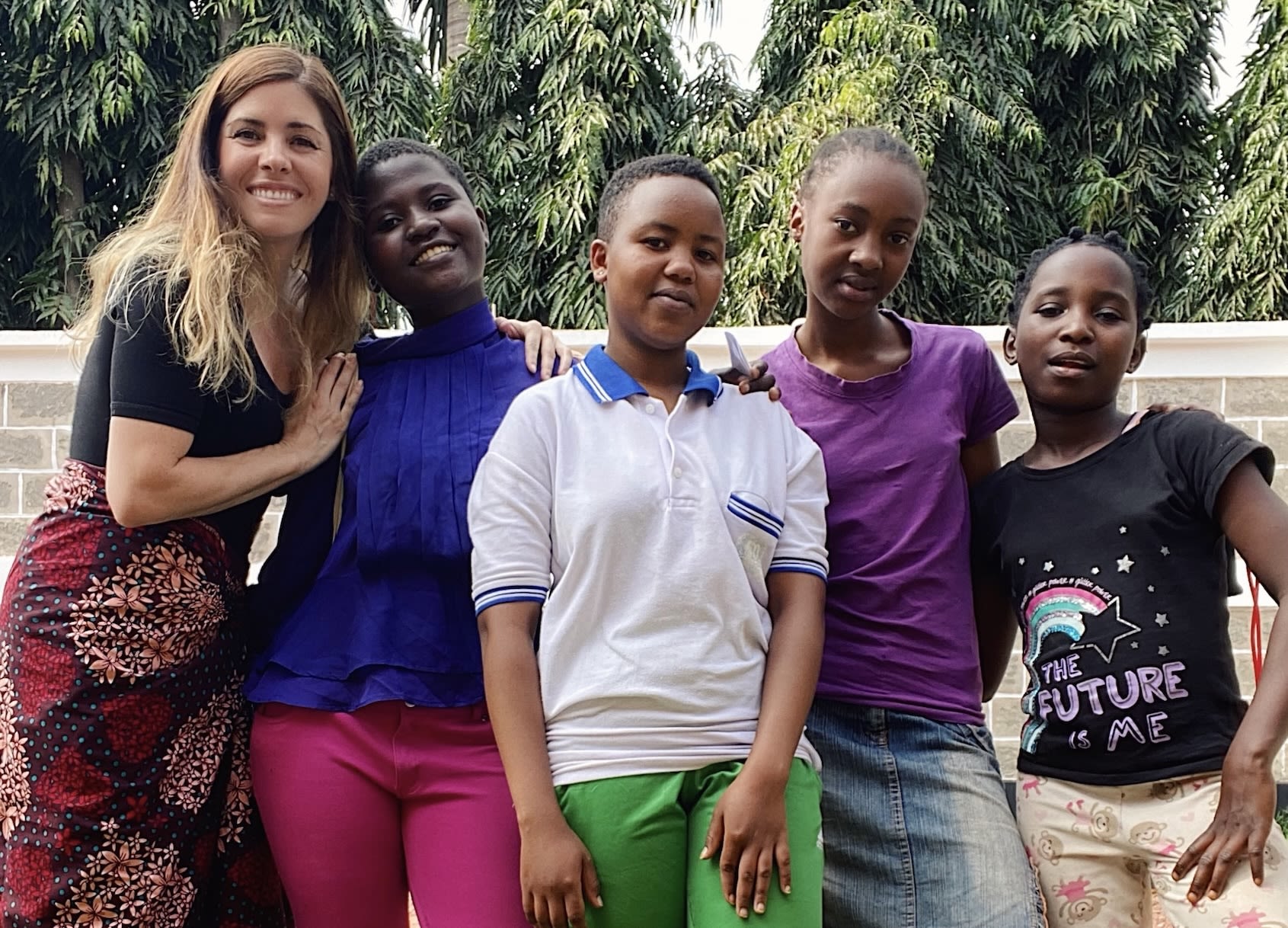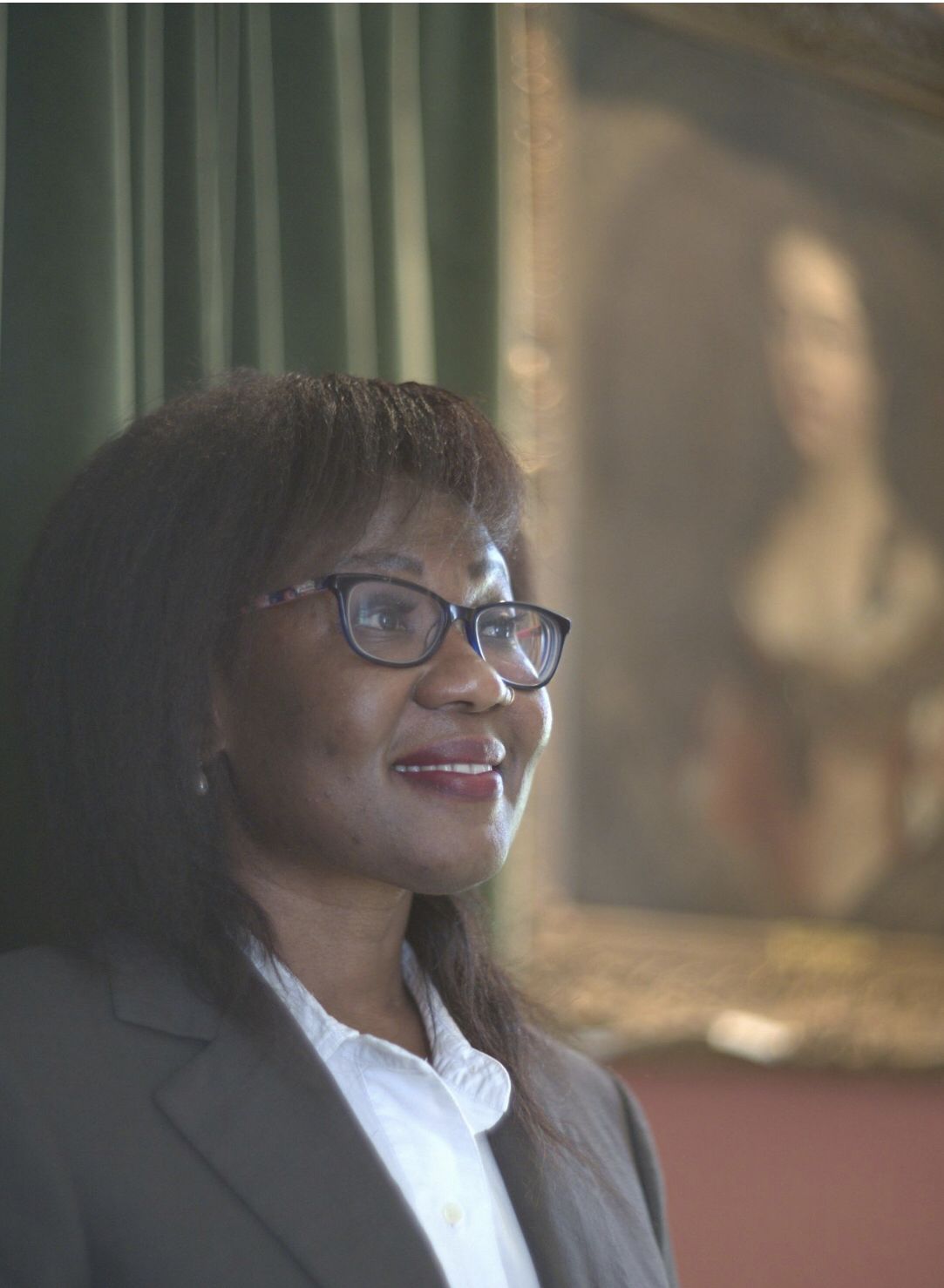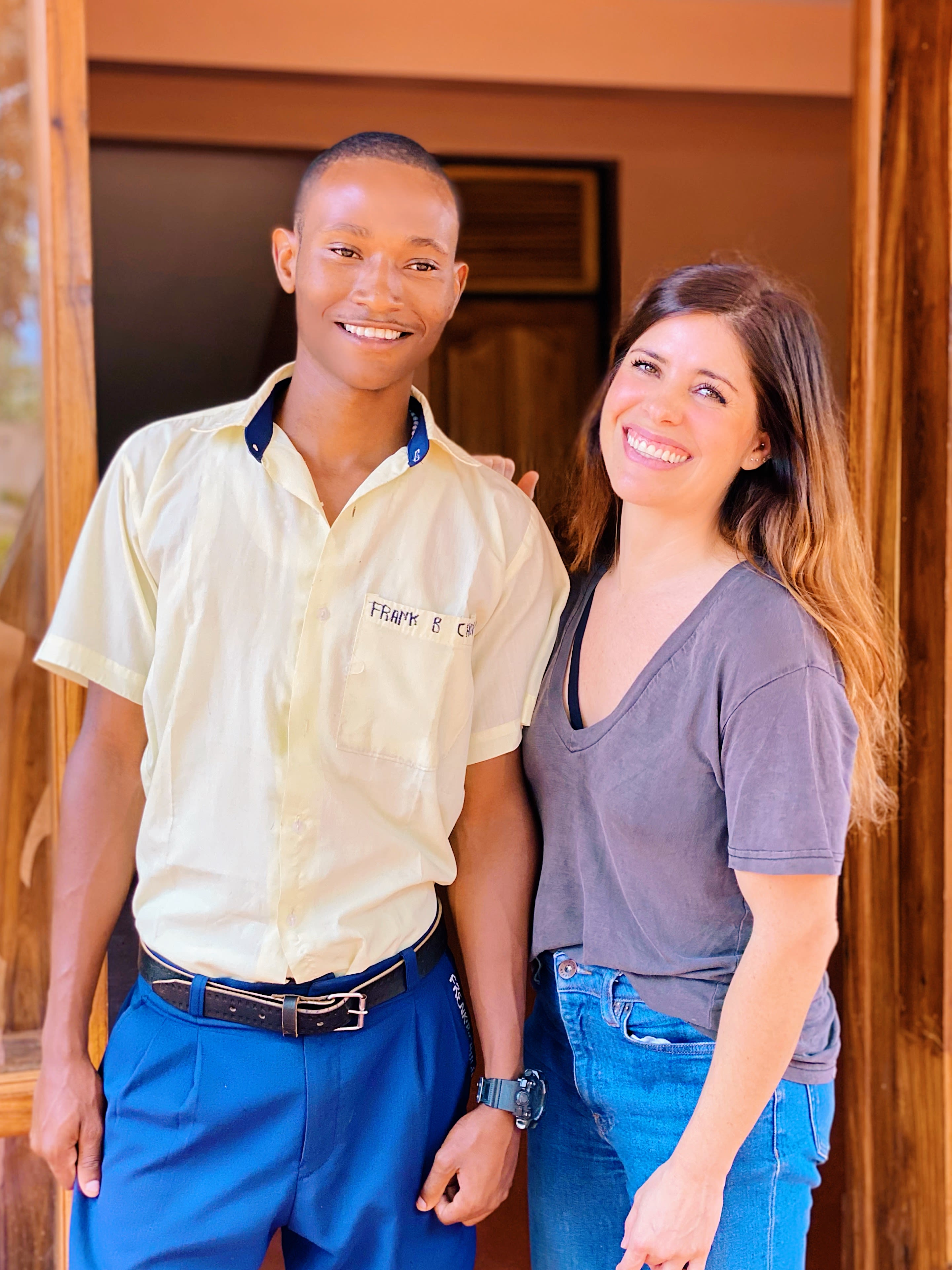Current Education Students
Two Darwin PhD students tell us how their very different pathways led them both to provide practical support for education in Africa


Bea Simpson
Bea Simpson
Bea Simpson
For Bea Simpson, a PhD in Education was a return to first principles. After training in law, she had returned to her native Uganda and worked with the African Prisons Project, supporting those in prison to understand the criminal justice system and work towards qualifications in law. But the overwhelming prevalence of poverty, low educational attainment and illiteracy in those she was working with led her to feel she was approaching things from the wrong angle.
“Justice is supposed to be equal for all, but I didn’t see this in practice,” she says. “Justice is not extended to you if you’re poor or illiterate. I wanted to be conduit for extending justice to everyone, as to me that’s what law is.”
The project had a significant impact, enabling many of those Bea worked with to leave prison sooner than they otherwise would have, and Bea and her team were invited to share their work at the UN Sustainable Development Goals in 2015. But her discomfort with the continuing need for the project’s existence grew.
“There were always more and more people coming through the system, so we were always going to have a job. However, the injustice of people spending longer periods on remand than they would have served had they been found guilty was not only unjust but also an inefficient use of limited public resources. I realised that what was actually needed was for people to be educated in the first place so that they could have a skill set to rely on for a livelihood. 90% of prisoners that I worked with in Uganda and Kenya were illiterate or semi-illiterate.”
Bea drew a direct line from the correlation between illiteracy and incarceration to the high dropout rates seen in Uganda’s primary schools at Year 3 level. A shift to English in the classroom sees pupils who speak a different language at home left behind, with a startling 70% both illiterate and innumerate before secondary school.
“The policies around language use disadvantage people in more rural areas, as those in towns tend to grow up speaking English at home. When I realised that just 0.5% of girls who start school in Uganda will go on to tertiary education, I was really shocked.”
Attracted by the possibility, at Cambridge’s Faculty of Education, of studying education from the perspective of international development, Bea applied for a PhD. Simultaneously, she began developing practical solutions closer to home, and set up a charity, Tusome Africa. It brings support for early childhood education directly to the children most at risk of dropping out, training volunteers to offer activities and engagement to out of school children.
“We have these amazing women working for us – I’m in awe of them,” says Bea. “We give them a bicycle, a bag of books and educational resources, and when they’ve worked for us for a year we try to find funding to properly train them as early years teachers, giving them a career, status and opportunity.”
While Bea claims that naivety about the challenges ahead played its part in giving her the courage to launch such an ambitious solution, the astonishing double act of pursuing a PhD on one continent while running a fledgling charity on another seems to have been mutually supportive. She graduated in 2023 with the MPhil component of her degree, a celebration delayed by pandemic, and hopes to complete her PhD this year.
“The courage to set up the charity came the minute I was accepted at Cambridge,” she says. “I knew that it had to do more than just get me a degree – it had to have a wider impact. Cambridge has really shaped my understanding of education, and Darwin has been at the centre of that. Seeing our volunteers in action gives me an incredible joy which fuels me.”
Regina Guzman Correa
In 2010, Regina Guzman Correa was pursuing a Master’s in Public Diplomacy at the University of Southern California. With a BA in Communication Studies and Art History already under her belt, and a developing career in the world of museums, the degree represented a slight change of direction. But she had no idea that a four-month internship would prove the most influential aspect of the programme.
“I spent the summer of 2010 in a small village in Tanzania, helping with a local micro-finance programme. The village was a tiny place, with no electricity or running water. Free primary education had just been introduced by the government, but its roll out was very slow and it took a while to reach rural communities. So there were loads of kids running around who weren’t in school, and we spent every afternoon with them.”
When Regina returned to the United States, she and fellow student Katie Moorehead were determined to find a way of supporting the education of the children they had come to know. So they set up an initiative which quickly became known as the Waka Waka Project.
“The year that we were there, the World Cup was held in South Africa and Shakira’s Waka Waka song was everywhere. The children all went mad every time it was played, and it just felt like the only possible name, especially when we discovered that in Swahili ‘waka’ means ‘light’, or ‘spark’, which is exactly what education can provide.”
For the past 12 years the Waka Waka Project has supported the same group of 15 children, sponsoring them to attend private English medium schools. Several of this first cohort have now begun university degrees, a significant achievement in a country where just 34% of the population complete secondary education and less than 2% of the workforce have university degrees.
“Lots of children have to drop out of the government system for various reasons, but non-formal schooling that would allow them an alternative route to education is very under-funded, and private schools are expensive. Also, while primary education is in Swahili, there’s an abrupt switch to English at secondary level, so 70% of children drop out before completing basic education as the language of instruction makes it very difficult to learn and pass examinations.”
For over a decade Regina has returned to Tanzania each summer to reconnect with the children, to visit schools and meet with their teachers, and to see the wider impact of the project. From the beginning, she and Katie decided to offer depth of opportunity to a small number of children whom they could commit to supporting for the long-haul, rather than providing more limited help to a greater number. However, there has been a spillover effect on the wider community, from parents being able to save up to send younger siblings to private school, thanks to the sponsorship of an older child, to a room originally built to provide space to complete homework, which now fulfils multiple village functions.
“It’s a very personal project,” explains Regina. “Almost all of our funding comes from donations from individuals, and we send all of our supporters regular updates so that everyone can see the direct impact even a small amount of money can have. We’ve been able to change these 15 lives through education.”
For Regina herself, the project has generated a deep long-term interest in education in sub-Saharan Africa, which has shaped much of her life following that first visit. She completed a Master’s in Development Studies at the LSE in 2020, and is now in the third year of a PhD in Education at Darwin.
“I’m focusing on secondary education, and the policies around non-formal education in Tanzania. I never realised how privileged I was with the education I had until I saw what it’s like to be 10 years old and not go to school.”

Regina Guzman and a beneficiary of the Waka Waka Project
Regina Guzman and a beneficiary of the Waka Waka Project
